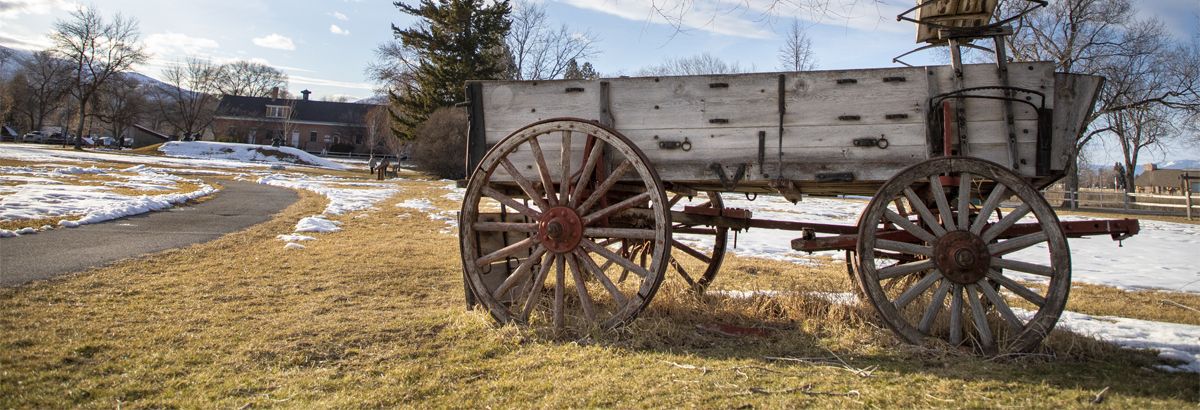What Is Public History?
Historical research and interpretation that is aimed primarily at other academic historians is “academic history.” Historical research and interpretation that is aimed at a non-academic audience, typically the broader public, is “public history.”
There are lots of different kinds of public history and a wide range of public history careers. Public history careers include historical interpretation (working at museums, historical societies, and historic sites); cultural resource management (maintaining the integrity of historic artifacts in construction zones); historic preservation (of buildings, sites, and artifacts); public policy and public planning (on behalf of federal, state, local, and tribal governments); digital humanities (using technology to make historical documents and data widely accessible); and historical consulting (for public agencies, private companies, and individual clients). Other public historians work as authors, editors, and journalists; filmmakers, documentarians, and podcasters; and librarians, curators, and archivists.

Here in Missoula, examples of public history in action include the (HMFM), which offers careers in historical interpretation, including designing exhibits and providing tours. (HRA) employs historians who conduct research on behalf of clients, such as the Department of Justice or the Environmental Protection Agency, to determine who has been responsible for mismanagement of tribal lands, or who bears responsibility for environmental destruction. HRA also has specialists in cultural resource management, who ensure that new buildings and roads do not destroy historical and cultural artifacts. Western Cultural offers these services, too; in addition, assists clients in applying for designations as historic sites or districts.
Public historians often partner with public and private agencies. Local examples include the , which overlays historic documents, archival photos, and oral histories onto the present-day landscape (Missoula County Treasurer’s Office); , which offers historical tours of downtown (Missoula Downtown Association); and , a collaborative “rapid-response” community archive project (UM; HMFM; Missoula County). These projects highlight how public historians promote town-gown cooperation.

Beyond Missoula, many public historians work for federal, state, local, and tribal government bodies. The National Park Service employs historians at historic parks throughout the nation, and the State Department hires many history graduates. In addition, state and federal agencies employ historians to assist in designing public policies and engaging in public planning. Tribal governments, nonprofit organizations, and private “think tanks” also hire historians to contribute to “white papers,” which are research reports that provide essential information to guide public policy. All of these entities, as well as private businesses and individual clients, also employ historians to apply for designation as historic sites, to design interpretive exhibits and markers, and to conduct historical research and writing.
Although our Public History Certificate is new, UM’s History Department has been active in public history for a long time! Our alumni have long been leaders in public history. Both HRA and Western Cultural were founded by UM history grads. Several UM history graduates work at these organizations. Other UM history alumni work for public agencies (such as the ), local historical societies (such as the ), and think tanks (such as the ).
UM faculty also have engaged in public history in a variety of ways.
 Professor Anya Jabour was a historical consultant for the PBS Civil War miniseries, and a board member for (and contributor to) the website and blog; she also has worked for the National Park Service, authoring an .
Professor Anya Jabour was a historical consultant for the PBS Civil War miniseries, and a board member for (and contributor to) the website and blog; she also has worked for the National Park Service, authoring an .- Professor Leif Fredrickson, who teaches “Doing Local History,” also produces an award-winning podcast, and does historical consulting for the , recently featured in .
- Professor Claire Arcenas, who teaches “Making History Public,” used digital technology to document the correspondence networks of Benjamin Franklin and his contemporaries in the project.
- Professor Jeff Wiltse served as historical consultant and content expert for , a major public historical exhibition on view at Philadelphia's Fairmount Water Works. You can read more about the exhibit .
Public History Resources
The field of public history offers numerous employment opportunities for those who have earned an advanced degree in history. These links provide only a beginning to the extensive professional resources that exist for those interested in pursuing a career in this robust field.
